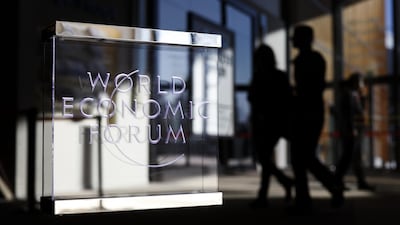As the World Economic Forum winds down, and leaders of nations and business make their orderly exit from the snowy Swiss town of Davos, a window opens for discussion of the state of the world, and where it is headed. As ever, the conference grappled with the most pressing issues of our time, from the challenges facing globalisation to the fourth industrial revolution, climate change and the implications of radical technological advancement. The forum's aims are certainly lofty, but that is no reason not to try. The reality is that the major problems we face today must be tackled together. And yet nations from the UK and US to Brazil are turning their backs on the multilateralism that Davos has long advocated. As we are propelled forwards by the extraordinary pace of global change, the world needs careful, co-operative policymaking and collaboration between the public and private sectors. And the objectives outlined at Davos will count for nothing if governments and businesses do not put in the serious work of implementing them.
We learnt much from this year's forum. A host of business and tech leaders outlined how automation and artificial intelligence will drive our futures. Those winds are already blowing, and societies must find equally innovative ways to adapt. The veteran broadcaster David Attenborough issued a dire warning about the imminent threat of climate change. Filippo Grandi, the UN high commissioner for refugees, appealed to world leaders to take responsibility for those torn from their homes by war, while the head of the International Monetary Fund, Christine Lagarde, laid out the threat posed to global growth by the ongoing US-China trade war. Particularly powerful were the words of Antonio Guterres, secretary general of the UN, who said the world was "on course for a disaster". A host of other issues, from gender discrimination to privacy, also drew attention. With so many cautionary words, this could be seen as a pessimistic Davos. But as the WEF itself declared prior to this year's conference, belief in globalisation and international co-operation remains undimmed across the world. Only dialogue can offer a solution to the problems we face. It is from conferences like the WEF that such co-operation emerges.
Critics blame its elite participants for creating the system that birthed the world's biggest problems. Shortly before the conference began, Oxfam reported that the world's 26 wealthiest individuals own as much as its poorest 50 per cent. Against that backdrop, it is not enough to defend globalisation in word only, while billions face hunger, conflict and economic decline. The participants of Davos have committed to "improving the state of the world". They must now prove that they are living up to it.

